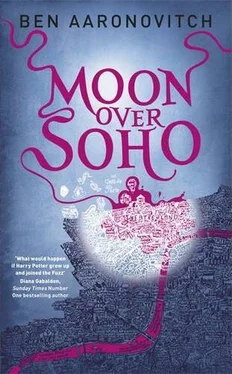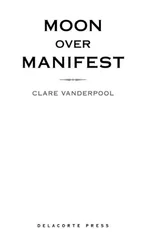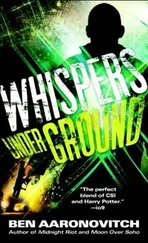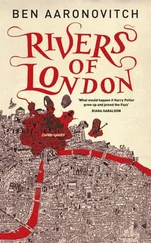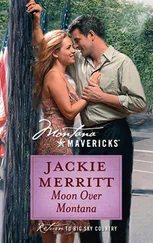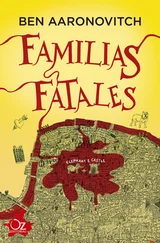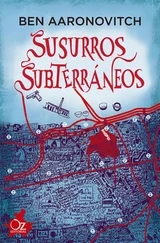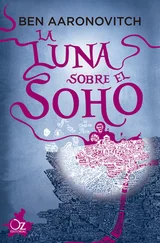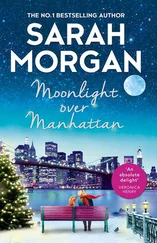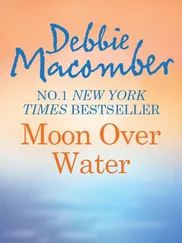I arranged for the bombing reports and the other documents to be copied and made sure to thank the librarian properly before heading for where I’d parked the Asbo that morning.
When I got back to the Folly I found Dr. Walid in the atrium talking to Molly.
“Ah good, Peter,” he said. “I’m glad you came back. Let’s have some tea, shall we?”
Molly shot me a reproachful look and went gliding off toward the kitchen. Dr. Walid led me over to a collection of overstuffed red armchairs and mahogany occasional tables that nestled under the overhang of the eastern balcony. I noticed he had his medical bag with him, a modern ballistic plastic case covered in burgundy leather whose one concession to tradition was the stethoscope wound around the handle.
“I’m concerned,” he said, “that Thomas has been pushing himself too hard.”
“Is he all right?”
“He’s picked up an infection and he’s running a fever,” said Dr. Walid.
“He was okay at breakfast,” I said.
“Man could be dead on his feet before he’d admit to it,” said Dr. Walid. “I don’t want him disturbed for the next couple of days. He was shot through the chest, Peter, there’s tissue damage there that will never fully heal, and it will make him prone to chest infections like the one he’s got now. I’ve put him on a course of antibiotics, which I expect Molly to make sure he completes.”
Molly arrived with the good Wedgwood tea set on a lacquered wooden tray. She poured for Dr. Walid with quick dainty movements and pointedly left without pouring mine. Obviously she blamed me for Nightingale’s relapse — perhaps she knew about the beer.
Dr. Walid poured my tea and helped himself to a HobNob.
“I heard Leslie is in town for an operation,” I said.
“She’s going to be fine,” said Dr. Walid. “You just need to make sure that when she asks for your help, you’re ready to give it. How do you feel about her injuries?”
“It didn’t happen to me,” I said. “It happened to Leslie and Dr. Framline and that poor Hari Krishna sod and the others.”
“Do you feel guilty?”
“No,” I said. “I didn’t do it to them and I did my best to stop it. But I feel guilty that I don’t feel guilty, if that helps.”
“Not all my patients start off dead,” said Dr. Walid. “Not in my medical practice anyway. Sometimes, no matter what you do, the outcomes can be less than optimal. It’s not whether you feel responsible, it’s whether you don’t shy away when she needs you.”
“The thought of her face scares me to death,” I said, before I could stop myself.
“Not as much as it scares her,” he said and patted my arm. “Not as much as the thought that you might reject her scares her. Make sure you are there when she needs you — that’s your responsibility in this — your part of the job, if you like.”
We were way over our daily quota of emo so I changed the subject.
“Do you know about the nest of vampires in Purley?” I asked.
“That was a nasty business.”
“Nightingale called what I felt there the tactus disvitae , antilife,” I said. “He implied that the vampires sucked ‘life’ from their environment.”
“As I understand it,” he said.
“Have you ever had a chance to section the brain of one of their victims?”
“Usually they’re in an advanced state of desiccation when we get them,” said Dr. Walid. “But one or two of them have been fresh enough to get some useful results. I think I know where you’re going with this.”
“Did the brain sections show signs of hyperthaumic degradation?”
“It’s hyperthaumaturgical degradation,” said Dr. Walid. “And yes, they showed terminal levels of HTD, damage to at least ninety percent of the brain.”
“Is it possible that ‘life’ energy and magic are essentially the same thing?” I asked.
“That wouldn’t contradict anything I’ve observed,” he said.
I told him about the experiments I’d run with pocket calculators and about how the damage done to their microprocessors had resembled the damage done to the human brain by HTD.
“That would mean that magic was affecting biological and nonbiological constructions,” said Dr. Walid. “Which means it might be possible to develop some form of nonsubjective instrumentality.” Clearly Dr. Walid was just as frustrated as I was with the Toby the Dog method of magic detection. “We have to replicate your experiments. This has to be documented.”
“We can do that later,” I said. “But what I need to know now is about the effect this might have on life extension.”
Dr. Walid gave me a sharp look. “You’re talking about Thomas,” he said.
“I’m talking about the vampires,” I said. “I checked in Wolfe and he lists at least three cases where it was confirmed that the vampires were at least two hundred years old.”
Dr. Walid was too good a scientist to just accept the word of a natural philosopher from the early nineteenth century but he conceded that the evidence indicated it was a possibility. Really, you’d expect a cryptopathologist to be a bit more credulous. Still, I wasn’t going to let a little bit of skepticism get in the way of a perfectly good theory.
“Let’s say for the moment that I’m right,” I said. “Is it possible that all the creatures with extended lives, the genii locorum , Nightingale, Molly, the vampires — isn’t it possible that they’re all drawing magic from the environment to keep themselves from aging?”
“Life protects itself,” said Dr. Walid. “As far as we know, vampires are the only creatures that can take life — magic, whatever — directly from people.”
“Exactly,” I said. “Let’s forget about the gods, Molly, and the other weirdos for a moment and concentrate on the vampires. Would it be possible for there to be a vampire-like creature that fed off musicians — that the act of making music made them uniquely vulnerable?”
“You think there are vampires that feed off jazz?” he asked.
“Why not?”
“Jazz vampires?”
“If it walks like a duck and quacks like a duck …,” I said.
“Why jazz?”
“I don’t know,” I said. My dad would’ve had an answer. He would have said it had to be jazz because that was the only proper music there was. “I suppose we could line up different kinds of musicians, expose them to our vampire, and see which ones suffer brain damage.”
“I’m not sure that would meet the BMA’s ethical guidelines on human experimentation,” he said. “Not to mention the difficulty of finding volunteers to be guinea pigs.”
“I don’t know,” I said. “Musicians? If you offered them money. Free beer, even.”
“So this is your hypothesis for what happened to Cyrus Wilkinson?”
“It’s more than that,” I said. “I think I may have stumbled upon a sort of trigger event.” I explained about Peggy and Snakehips Johnson and the Café de Paris and it all sounded thinner and thinner even as I was laying it out.
Dr. Walid finished his tea as I wound down.
“We need to find this Peggy,” I said.
“That much is certain,” said Dr. Walid.
I DIDN’T feel like doing data entry and I still couldn’t get Leslie on the phone. So I cropped a high-resolution image of Peggy in 1941 and printed out a dozen copies on the laser printer. Armed with those, I headed into Soho to see if I could find anyone who remembered her. Starting with Alexander Smith. After all, Peggy and Henry Bellrush were one of his top acts.
When he wasn’t paying women to take off their clothes in an ironic postmodernist way, Alexander Smith operated out of a small office above a sex-shop-turned-coffee-bar on Greek Street. I buzzed the intercom and a voice asked who I was.
Читать дальше
